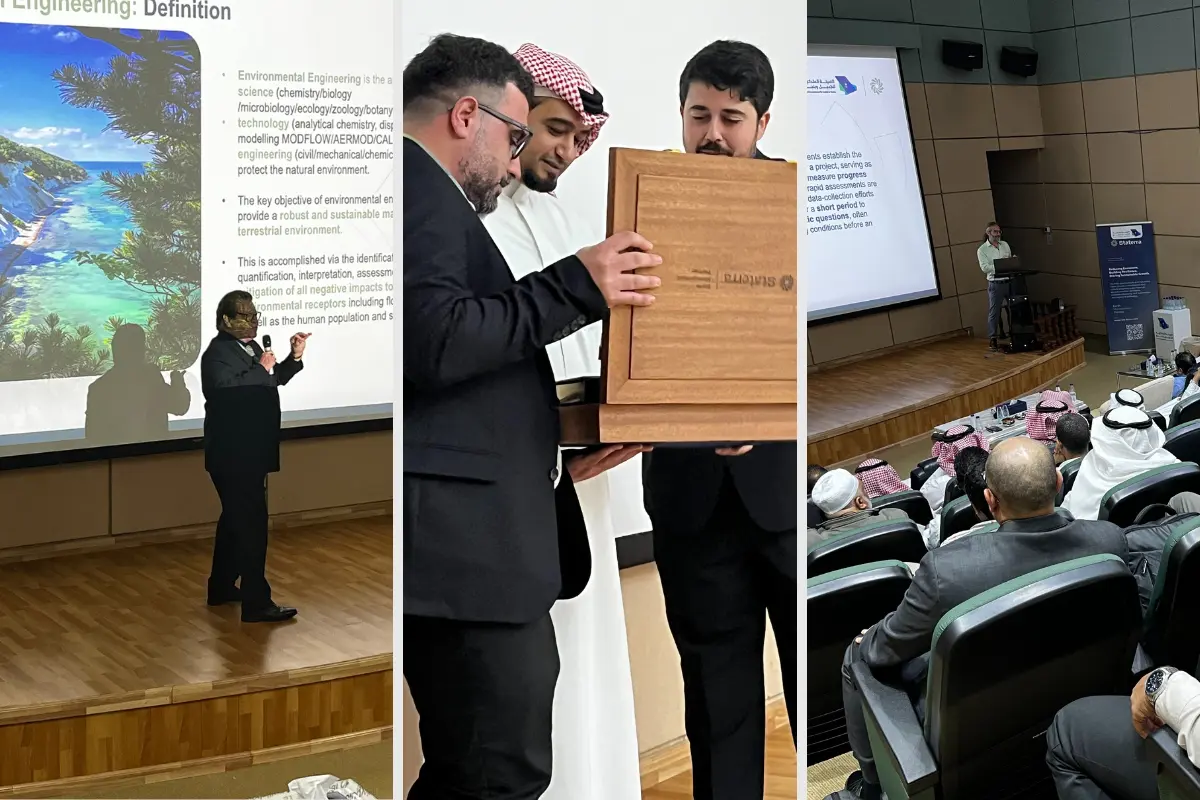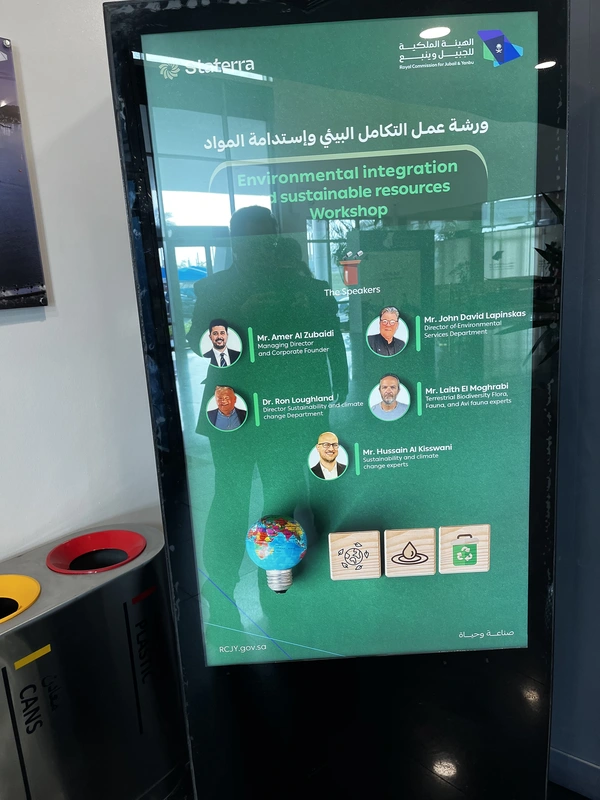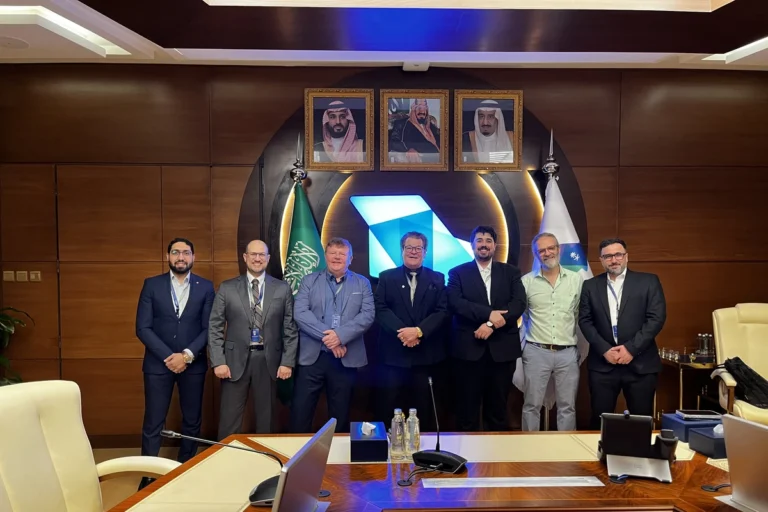
Environmental Integration and Resources Sustainability: Key Takeaways from the Saudi Workshop
Environmental sustainability and biodiversity are now vital to Saudi Arabia’s future. Initiatives such as Vision 2030 and the Saudi Green Initiative set the pace for this transformation.
A recent workshop, hosted in partnership with the Royal Commission for Jubail & Yanbu and Jazan City for Primary and Downstream Industries, brought together over 300 participants, in person and online, for a day of practical, engaged discussion on the Kingdom’s environmental progress.
At Staterra, we’re proud to have played a key part in organising and contributing to the day’s insights.
The programme began with general introductions led by Ahmed Omar Almoodi, Environmental Specialist at RCJY.

Following this, the sessions properly opened with Amer B. Zubaidi‘s call to shared environmental responsibility, stressing that “progress and protection are not opposites – they are partners.” Amer highlighted Jazan as a symbol of how Vision 2030 can achieve a balance between industrial growth and guardianship of the environment. He also pointed out that environmental management must be “a catalyst for innovation, a foundation for credibility, and a pathway to resilience”.
John David Lapinskas offered practical guidance on technical standards, updated compliance rules, and modern site remediation. His key message underlined that securing a liveable planet requires advancing climate resilience and educating our children about nature, the environment, and circular resource management.
National targets were strongly featured. Sessions with Hussein Al Kisswani and Dr Ronald Loughland highlighted afforestation drives and Saudi Arabia’s ambition to build a circular carbon economy. The nation’s unique biodiversity also took centre stage, with Laith El Moghrabi showcasing natural heritage as a cornerstone of sustainability.
Amer Zubaidi closed the workshop by emphasising that every project should aim to strengthen both the economy and the nation’s natural legacy. He called on participants to make Jazan a model not only of industrial excellence, but of environmental leadership, stressing that meaningful environmental change relies on open exchange and robust collaboration among all parties.

Special thanks go to the Royal Commission for Jubail & Yanbu and Jazan City for Primary and Downstream Industries for their outstanding organisation and leadership.
For those interested in the next chapter, don’t miss Staterra’s upcoming webinar, “KSA Legacy Waste Assessment & Remediation – Oil and Gas.” More details to be shared soon.
